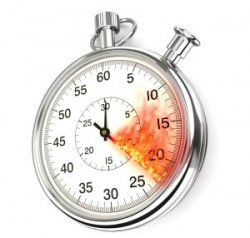
Glucocorticoids are steroid hormones that suppress inflammatory responses in the body. Synthetic versions of these hormones are used clinically to treat conditions like arthritis and asthma, but their anti-inflammatory effects can take from four to 24 hours after administration to kick in.
Previously, Sandip Bhattacharyya and colleagues showed that glucocorticoids regulate different signaling pathways depending on the activation of various Toll-like receptors (TLRs), the immune “sensors.” But since these events happen early in the inflammatory process, other mechanisms must be involved in the delayed effects of glucocorticoids. In the June 7 issue of the Proceedings of the National Academy of Sciences, they report that the delayed effects may result from the regulated activation of two other factors – SOCS1 and Type I Interferons, several hours after the initial activation of TLRs.
The results obtained from SOCS1-deficient macrophages suggest that augmenting SOCS1 action could provide the anti-inflammatory benefits of glucocorticoids without inducing the adverse side effects associated with steroid treatments.
The research was supported by the National Institute of Allergy and Infectious Diseases, the National Institute of Mental Health, and Pfizer, Inc.